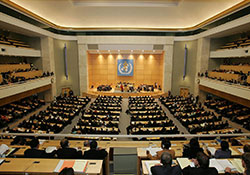Policy

WHO
When disasters strike, WHO/Europe works closely with local health authorities to coordinate the humanitarian health response in the health cluster/sector, which involves national and international health partners in jointly responding to the health needs of the affected population. In the aftermath of a crisis, WHO/Europe supports recovery plans and reconstruction efforts to improve resilience of affected health systems and their communities.
WHO’s technical support to strengthen disaster preparedness and response follows an “all-hazard/whole health” approach.
What is the All hazard approach?
All-hazard is a concept acknowledging that, while hazards vary in source (natural, technological, societal), they often challenge health systems in similar ways. Thus, risk reduction, emergency preparedness, response actions and community recovery activities are usually implemented along the same model, regardless of the cause.
What is the whole health approach?
The whole-health approach advocates that the emergency preparedness planning process, the overall coordination procedures, surge and operational platforms are led and coordinated by an emergency coordination body at the central and local level, which involves all relevant disciplines of the health sector and deals with all potential health risks.
What we do
WHO/Europe supports Member States in preparing for, responding to and recovering from disasters and other health crises.



